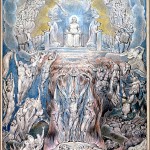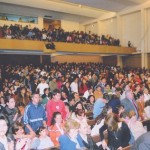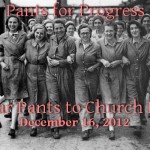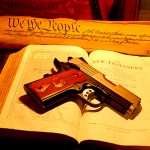This is an installment of the Religious Fundamentalism and Sexuality Project. You can read the full list of questions here and the posting plan here. The first six participants whose stories I’ll be posting are Melissa and Haley, Lina and V, Latebloomer and Katy-Anne.
Peer Group
1. Growing up, did you (a) identify as gay, lesbian, bi or trans, or (b) know someone who did? How did you feel about that knowledge (about yourself or other person)?
Melissa and Haley
Melissa:
I was very attracted to girls, but I never identified myself as Queer. In my mind, being LGBTQ was a choice that a damaged demon-possesed person made, and I wasn’t going to make that choice. I tried to ignore my attractions as much as possible, I told myself that they were sinful or I tried to explain them away. (“I just think I’m attracted to her, because I wish I could look like her.” “Fantasies and dreams about girls only come into my head because I have no experience with men, once I am with my husband someday that will go away.” ) I did not ever know of any LGBTQ person who was out and living openly.
Haley:
I realized on some level that my feelings of gender identity were different from an early age. I identified with girls. I loved the games that were stereotypical for them. But that kind of behavior had to be kept hidden. It was discouraged. When I was 11 I read in an illustrated history book about America’s first publicized transsexual Christine Jorgensen. When I read the caption “Man becomes woman” I was mesmerized. I wondered if it were really possible. I also thought I am like Christine. But given the highly rigid environment I existed in; I repressed those feelings. In fact, there were times I did things just to be more masculine so that no one would suspect the “evil” lurking in my brain. But not a day went by without the intense desire to be female. To survive I believed the lies I was told about it being prayed away or resolved after marriage.
Lina and V
Lina:
I was perfectly straight, of course (ha), and I didn’t know anyone otherwise. My entire social world was the church.
V:
I was definitely straight growing up. But I didn’t realize I could be gay. There was no category in my head for “Christian” and “gay.” The two were mutually exclusive. I was a Christian, therefore, I was not gay. It wasn’t even something that I gave any thought to. It was a no-brainer.
Latebloomer:
I was isolated and homeschooled, so I’m not aware of meeting any non-straight people until I was in my twenties. I don’t remember hearing of anyone in my homeschooling community who knew a LGBTQ person either.
Katy-Anne:
I did identify as lesbian for a while because I was genuinely attracted to and dating girls. I know there is a lot of controversy over whether someone can be ex-gay, but I do define myself that way because I have not yet found a better description for it. As I grew up and left home right before I turned 18, I knew and liked several GLBTQ people, although I did feel some need to evangelize them I usually didn’t because I was so confused about my own sexuality and part of me was jealous that they were not ashamed of their lives. I was definitely “in the closet” though because I was so scared and so confused. I am now married to a man and I am fine with that decision. I never saw my GLBTQ friends as disgusting even though the fundamentalists told me that I should, and therefore I felt guilty because supposedly God wanted me to be disgusted with it.











